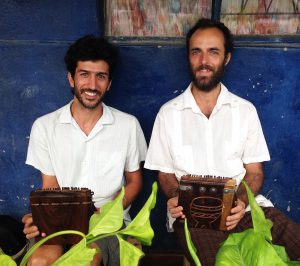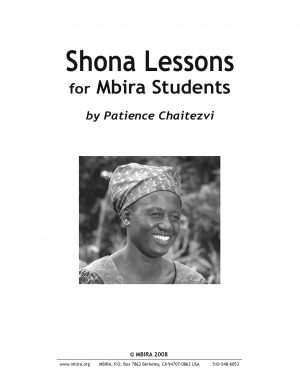
You are welcome to contact us for advice and mbira teacher contacts, if you are traveling to Zimbabwe to study mbira. Please do consult us, or Zimbabwean mbira players you know, before planning a trip to Zimbabwe, as there are certain times that it is NOT advisable to go.
MBIRA may be able to connect you with mbira players in Zimbabwe who can teach you, and some can host you, too. Please pay them generously, as times are very tough economically in Zimbabwe!
Travel tips
- Learn some of the Shona language, at least the basic greetings used several times a day by Zimbabweans. MBIRA now offers ‘Shona Lessons for Mbira Students’ (text and audio recording, available as Download or Book/CD). Another favorite Shona language book is ‘Learning Shona’ by Dambudzo Ruzhowa (HarperCollins Zimbabwe), which is also available from MBIRA. Both of these cover not only the language, but some of the essential cultural information you need to be a polite visitor. If you live near a university, check if there is a Zimbabwean student or professor there who would be willing to give you language lessons before you leave home, to work on your pronunciation. Urban Zimbabweans are also fairly fluent in English, though your accent will be really mystifying to some, so speak as clearly as you can and avoid local idioms from home.
- Remember to be up to date on all your regular immunizations, and get travel immunizations for Typhoid and Hepatitis A at a minimum. You will need to take malaria prevention tablets (we recommend Malorone) unless you are traveling during the dry months of June, July, August (if it’s a wet year, you may need to take them even in the “dry” season).
- Learn more about the culture, if you might want to go to a ceremony while you are in Zimbabwe. Read Mapira: Shona Ceremonies by Patience Chaitezvi Munjeri (available as Download or Book).
- Please pay for mbira lessons no less than the amount you would pay at home.
- If you are going to stay with a rural family, it is traditional to take foodstuffs as gifts, that are hard to get in villages. For example: cooking oil, sugar, salt, tea, rice, etc.
- Do not trust drinking water in Zimbabwe in cities or shallow wells in villages. You can buy safe bottled water in cities (ask locals about safer brands), or take a Steripen to use on village water. A Steripen is fine to kill pathogens in village water but not good enough for city water, which has industrial waste in it, so use bottled water in the city.

